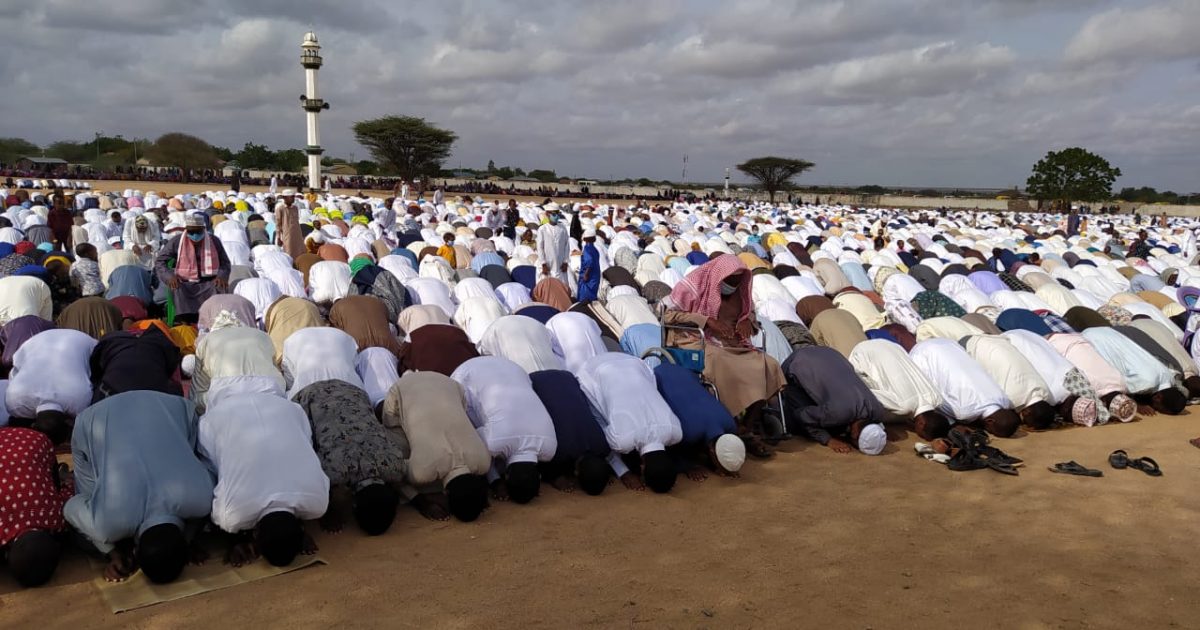Thousands of Muslim faithful across Garissa County held the Idd –ul- Adha prayers Tuesday under strict Covid-19 restrictions.
At the famous General Mohammud Idd grounds, the prayers were led by Imam Sheikh Bashir with Garissa SUPKEM chairman Abdullahi Salat who was present calling on Muslims to mark the day by helping the needy in the society.

Sheikh Abdullahi further asked area residents to maintain peace especially at this time when the country is heading for next year’s general election.
On the appointment of a woman as chief Kadhi, Abdullahi said Islam was not a religion of opinions and that they would not allow anything that was not in line with the teachings of Quran.
“Islam has rules and regulations that have to be followed. Those calling for the appointment of a woman Kadhi do not know where they are heading. This is not an issue where everyone is going to give their opinion,” he added.
Idd –ul -Adha is marked on the tenth day of the month of Dhul Hijja in the Islamic lunar calendar and after the completion of the annual pilgrimage to the holy city of Mecca in Saudia Arabia.
Muslims usually throng the holy city during the annual pilgrimage. The pilgrimage is one of the five pillars of Islam and it is obligatory to only those who are financially capable and in good health.
Saudi Arabia had restricted this year’s hajj pilgrimage to 60,000 people due to the COVID-19 pandemic.
The festival of sacrifice also called Idd-ul-Adha is important in the Islamic faith since Muslims commemorate the Prophet Ibrahim’s consecration and willingness to sacrifice his son. This was a command from God to test Prophet Ibrahim’s commitment and he finally slaughtered a ram in place of his son.
After Idd prayers Muslims slaughter an animal as a remembrance of Prophet Ibrahim’s readiness to slaughter his son. The sacrificial animal must be of good health and mature.
The meat from the slaughtered animal is then divided into three equal portions among families, neighbors and friends and the final portion given to less fortunate in the society.
By Erick Kyalo





